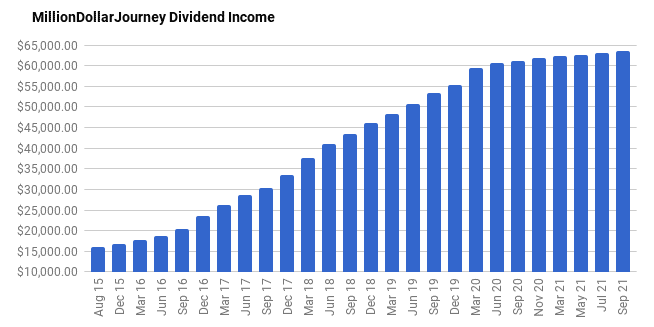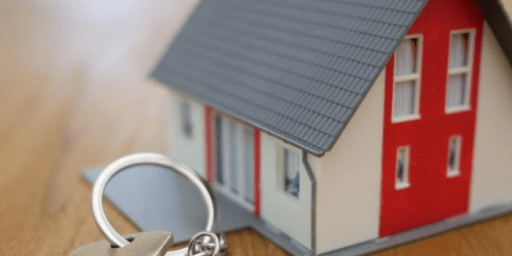Reader Mail: Buried in Debt, Help!
I received an email from Curtis last week regarding how to deal with all his debt. This was the email:
I have a question in regards to student loan debt. Myself and my wife both have student loan debt over $40,000 combined. We both have good paying jobs with a total income of about $80,000-$85,000. We have purchased a modest home and own a modest car. We find it very difficult to get any kind of savings going other then investing in our RRSPs every year. Do you have any advice or recommendations when it comes with balancing this amount of debt?
Curtis, I’ve felt your pain, we were in a very similar situation when we first graduated also. $40k in student loan debt, new mortgage, and a new car loan.
What we did was sat down and created a cash flow spreadsheet (budget). To start, determine what you spend on a regular day. Do you buy coffees or go out for lunch? Does your wife? Eliminate the unnecessary spending, and put it towards your debt. Also, when you receive unexpected income like a tax return, or job bonus, save it up and put it on your debt.
Some tools to help manage your cash flow?
I use MS Money at home, but I hear that Quicken is a really good package for Canadians. If you create your own spreadsheet, it doesn’t have to be complicated. Open up your favorite spreadsheet program and use 2 columns, expenses and income.
For the expenses (monthly):
- Mortgage + property tax
- prop insurance
- utilities (heat and light)
- cable/tel/cell/internet
- home improvement
- car payment
- car insurance
- car maintenance
- license
- gas
- groceries
- gifts
- dining out
- hobbies
- RRSP contributions
- debt repayment
Income is self explanatory.
This will help determine what you have left at the end of the month. If it’s not much, then you’ll have to look at where you can cut back. What I found to be a real eye opener was when my wife and I sat down and went through what we spent money on in the run of a day. Those coffees/cigarettes/beers/fast food can be killer on the budget. Get rid of those unnecessary expenses, and you’ll have thousands more in your pocket every year. For example, cigarettes are around $10/pack, if you have one pack a day, that’s $3,650/year! Even having a couple of coffees a day at Tim Hortons will result in $1000/year.
In the end, it comes down to 2 things, either reduce your expenses or make more money. Ideally, do both. :)
To summarize:
- Create a budget and figure out where you can reduce costs.
- Put all extra income onto your debt. That’s basically what we did and we’re now debt free (except for mortgage).
Hope this helps! Do you have any tips for Curtis?
Disclaimer: The articles posted on Million Dollar Journey are the opinion of the author and should not be considered professional financial advice. Please consult a financial professional before using any information provided by this site.
I've Completed My Million Dollar Journey. Let Me Guide You Through Yours!
Sign up below to get a copy of our free eBook: Can I Retire Yet?










[…] Reader Mail: Buried in Debt, Help! (21 comments) […]
I may well be missing something here, but isn’t the above disagreement caused by mixing references to short-term versus long-term strategies?
We used to ask the question: Do we keep investing our savings, or do we buy a home? It didn’t occur to us until reading about readvanceable mortgages that we could do both. By being careful about what we bought, and the mortgage terms used to buy it, we didn’t need to take on additional jobs. I think that might qualify as an example of “scale”, if I understand the use of the word here.
We don’t have to move/sell to realize a gain in property value; we simply reappraise, then reinvest. The gain is translated into additional power to generate wealth. It’s a long-term plan, so the gains are realized indirectly, deferred so that they can compound. Using the purchase of increasingly valuable real estate to also further our investments elsewhere seems to me a valid example of getting the best value for our investing dollars.
Gates VP said: “If you look around, this site is all about working smarter NOT harder. ”
And today’s post seems to harken back to my suggestion of multiple income streams; become a landlord, operate a small business, etc. This blog is about one person’s journey to becoming a millionaire, and getting value for your dollar is one part of that.
I’m also curious to learn of the savings that you would expect if I had rented my current house instead of buying it. I can see some expenditures such as cosmetic painting, landscaping, and other improvements increasing my costs, however, I expect that my utilities would be the same, the landlord would flow the taxes through, and of course, take his profit. The only way I can see the rent being cheaper than the mortgage interest, is if the landlord acquired the dwelling at a MUCH lower price than I, and therefore can get his return based on that investment cost, rather than mine.
In addition, my mortgage cost remains static for the term. My landlord can increase my rent annually, or in some jurisdictions make increases on a whim. SOME cities are seeing tenants evicted, and their dwelling space sold to another. The purchase of a home insulates me from all these negatives, and also keeps my housing value current. As I stated in my earlier post, I could not have found an investment that would match the increase in value of my home. As such, I see no easier way to protect myself from the increases in the housing market than to be directly involved in it.
As an investment in my future financial well-being, home ownership has some very positive aspects.
DAvid
Look David, even on an “equivalent size basis”, there is simply no comparison between renting costs and owning costs nearly anywhere in the country. I’ve run the numbers several ways and it all bears down to lifestyle decisions, which is summed up real well here: However, I also have an opportunity to pursue hobbies that would not be possible in an apartment.
But statements like this one: there is no possibility that any investment I would have considered would have doubled in three years are just misleading b/c you can’t actually realize your gain without moving. So it’s like your favorite job of all-time offering you double your stock options to leave.
The car is also a lifestyle decision (often tied to the house lifestyle decision). But the car does not appreciate in value, instead, owning “a car” is the single most expensive way to get around.
If you look around, this site is all about working smarter NOT harder. Take a look at today’s post: Dividend Analysis. We’re talking about getting the best value for your investing dollars here, not about taking on a second job so that you can have more dollars to invest. We all know about the second job method, but it simply doesn’t scale, b/c I can’t just take on a third and fourth. But when we talk about dividends we talk about stuff that does scale, if I triple my investment, I can reasonably triple my return.
DAvid, you make some great points.
I guess it’s obvious why you might advocate owning a home (seeing your home double its value in 3 years!) whereas I might swing to the other side (having seen my home value decrease since our purchase 3 years ago). ;)
Hindsight is 20/20 and we can’t predict the future so I tend to look at home ownership as a purchase, not an investment. If it turns out to be, more power to me, but if I don’t sell and am not receiving any dividends then it wasn’t an investment in the true sense of the word after all.
BTW, it’s possible to rent a house, not just an apartment.
Telly said;”If I added up the costs of owning our home over the last 3 years, it definitely would not have amounted to savings vs. had we rented and invested the difference.”
Ah, but therein lies the rub — you need the wisdom, and to adopt the responsibility to invest the difference! There are also other issues that arise, including do you rent an equivalent dwelling to the one you would buy; are suitable rentals available; and if you are moving, do you build enough equity to afford to enter the market at a later time. In the situation that I see in my community, the rapid increase in housing prices has made home acquisition nearly impossible for the average working joe. Rentals are effectively unavailable. Fortunately we were able to buy into the market during a relative low, and are able to use that equity should we move to another location. Had I rented, and invested the difference (an opportunity I have used in the past), there is no possibility that any investment I would have considered would have doubled in three years.
Yes, there are some additional costs associated with owning, mostly related to maintenance, but utilities, etc would be the same if I own or rent a house. However, I also have an opportunity to pursue hobbies that would not be possible in an apartment.
DAvid
As always, great advice guys.
Basically Curtis, in your situation, keep doing what you’re doing and you’ll be debt free in no time. Watching your spending, and putting all excess income into your debt will accelerate your debt elimination. But overall, looks like you’re on the right track!
Though I don’t agree entirely with Gates VP, I do think he makes a valid point. I too, am of the opinion that a home (even a modest one) costs a lot more than people think. The idea of “forced savings” instead of “wasting money on rent” doesn’t bode well with me (the owner of a modest home :))- but it’s exactly what realtors and bankers love to tell young couples. If I added up the costs of owning our home over the last 3 years, it definitely would not have amounted to savings vs. had we rented and invested the difference.
Curtis, you mention that you have $30k in equity in your home and the value keeps rising. Is the $30k built up through downpayments (not including the HBP amount you have owing) and prepayments or is much of that a result of increased value since you bought? If it’s through prepayments, I would obviously suggest reducing those.
I guess my adivce to Curtis would be: don’t worry about savings yet. Take care of the loans (it sounds like you’ve been doing a good job so far), make sure you have either an emergency fund or line of credit, contribute to your RRSPs enough to get the match and pay back the HBP and keep plugging away, increasing your loan payments with any salary increases and tax refunds you may get. Soon enough you’ll be done with the loans and all that money can start going to savings.
nobleea, that is one point I left out, Thx for highlighting that for me. The credit card names I used above in the example are generic credit card companies. WRT credit card options – You should have at least a 30-day grace period and you should find the lowest interest rate you can for this to work. That is the only way it will work b/c as you mentioned above interest will be higher each month with a 21day grace or a daily accrued interest rate. Obviously the billing cycling needs to be reviewed and cards selected for what you will use them for. Be sure to read the fine print CAREFULLY along with any new terms and conditions sent to you by the credit card company. Thx for the response.
Curtis,
So, as you offer more information, it becomes easier to assess your situation, and offer advice.
In my town in rural BC, a ‘modest’ house now costs $300,000, double what it did 3 to 4 years ago. I believe this to be within the range of much Real Estate in Canada currently.
A ‘modest’ car is in the ballpark of $30,000 these days.
An average Canadian family income is a bit over $75,000 per annum.
You now indicate that you have (by most Canadian standards) a very inexpensive home, a compact car, a modest income, and have paid over 10% of your net income against your student loans over each of the past 5 years. This is a very different story than contained in the original quote. Based on this information, you are doing quite well financially.
Based on the original information, which suggested that you were recent graduates, owned a recently purchased home, a car that was purchased new, and student loans with no information about repayment, I stick by my original comments. For new grads, etc., your description is of a costly lifestyle. As suggested in other posts to this blog, given the information you provided, there are other avenues to financial security, that could be chosen.
GatesVP,
The benefits of the ‘expensive lifestyle’ refers to the forced savings that purchasing a home early rather than later usually causes, building home equity that may be used in a number of ways, and the acquisition of a vehicle that should be able to be kept for a decade or more. It also frequently causes that home owner to make expenditures that increase the value of that holding, rather than spending it in other directions. the ‘dividends’ accrue from the investment in home equity, rather than an expenditure in rent.
Yes, my solution, if you want to reduce debt in a hurry is to work harder. MOST of the wealthy folk I am aware of worked hard for their wealth — running small businesses with untold hours of labour to generate their wealth. While their lifestyles are not ostentatious, they do not live what I would call a frugal lifestyle. The folk I am speaking of are the working wealthy — the independent plumber or electrical contractor, the corner druggist, the realtor; the ‘millionaire next door’. Each of these folks can generate a fair bit of wealth, but it comes at the cost of additional work; being there when your customer needs your services, so they recommend your services to others. Doing the books after hours, to ensure you get paid; meeting customers at their time schedule, etc. While I agree that one will not become wealthy if they spend their income, few will become wealthy simply by reducing spending on an already small income.
DAvid